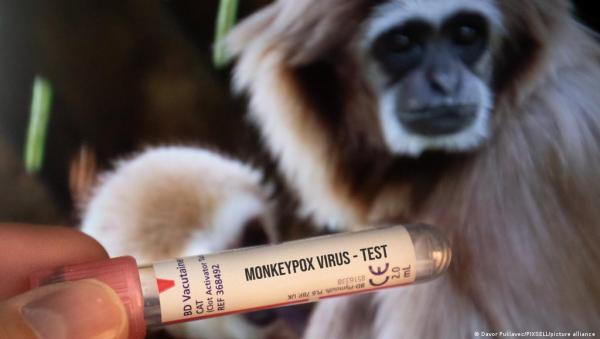

Translated by - Noor
Al-Saleh
The World Health Organization has warned from
the 200 monkey pox infections which detected in recent weeks in countries where
the virus does not usually spread, could be the "tip of the iceberg".
"We don't know if we're just seeing the
tip of the iceberg," said Sylvie Briand, director of the WHO's Department
of International Preparedness for Infectious Risks, in a presentation at the
World Health Assembly in Geneva on the "uncommon" spread of the
virus.
Briand added that
experts are trying to determine the cause of this "unusual situation"
and preliminary results show there is no mutation or mutation in the monkey pox
virus.
"We have a window of opportunity to stop
the outbreak now," she said. "If we take appropriate measures now, we
can probably contain it quickly."
"We are currently
at the beginning of this event," the WHO official said, adding, "We
know that more cases will appear in the coming days," but "this is
not a disease that the general public should worry about, it is not Coved or
other diseases that spread rapidly."
The number of
confirmed monkey pox infections worldwide reached 219 on Wednesday outside
endemic countries, according to a report issued by the European Center for
Disease Prevention and Control.
The Stockholm-based
European agency said, "The majority of cases are in young men who identify
themselves as men who have sex with men. There have been no deaths."
Most of the infections
are concentrated in Europe, which has recorded 191 cases, including 118 in the
European Union.
The majority of
infections were recorded in three European countries: the United Kingdom, where
the first unusual cases were detected in early May (71 cases), Spain (51), and
Portugal (37), according to the European Center for Disease Prevention and
Control.
The Centers for Disease Control and Prevention
considered that the probability of transmission of monkey pox infection in the
general population is "extremely low", but on the other hand, it is
"high" in people who have multiple sexual partners.
This disease is endemic in 11 countries in
West and Central Africa, and it is from the smallpox family, which was
eradicated about 40 years ago, but it is less dangerous than it.
It initially causes a
high temperature, and quickly develops into a rash with blisters.